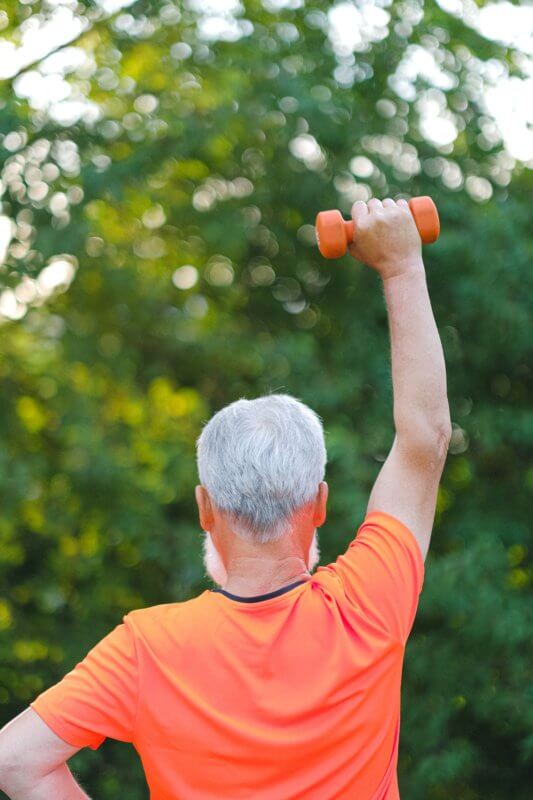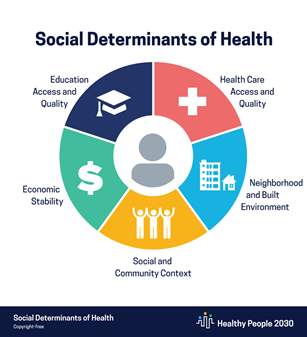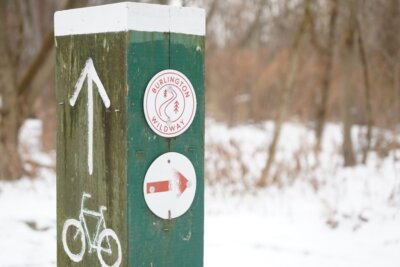Later in life is not too late to begin regular exercise
Staying active benefits our health in more ways than one, but why does it continue to be an important lifestyle choice as we get older? How do we stay active if we are concerned about falling, our joints hurt and activities we once enjoyed no longer feel doable?
Keeping a regular exercise routine can pose some new challenges in the later years of life, but with thoughtful selection and a willingness to adapt it can still be achievable, enjoyable and beneficial for your health.
 How does exercise benefit seniors?
How does exercise benefit seniors?
Regular exercise helps maintain healthy muscle mass and bone density which are critical in preventing falls and bone fractures, a very real concern among older adults. Research has also demonstrated that exercise can reduce arthritic pain by lubricating joint surfaces and strengthening the muscles that support them. Regular physical activity also benefits our cardiovascular system by lowering blood pressure and preventing the onset of cardiovascular disease.
Research has also indicated that routine exercise can slow or prevent cognitive decline, lowering the risk of dementia. And a regular exercise program has been shown to help mentally by lowering anxiety and improving sleep.
Staying active safely as you grow older
There is not a one-size-fits-all exercise prescription for older adults. There are those who are able to climb tall peaks, run marathons and ski down steep slopes into their 70s and 80s.
More commonly, however, this type of heavy impact activity usually becomes challenging for our joints to sustain as we grow older. It can be a frustrating experience to consider giving up an activity you love. While these feelings are very understandable and not to be dismissed, there are several alternative forms of exercise that can still provide you with all the health benefits of physical activity without causing body pain and subsequent frustration.
If you are someone who loved hiking tall peaks, an excellent substitute would be hiking on trails with a lower elevation or more gentle rolling terrain. Instead of running, you may consider taking up bicycling, which is less impact on your joints but still gives you an excellent workout and gets you outside.
If downhill skiing is no longer viable for you, cross-country skiing and snowshoeing are both wonderful winter sports that are much lower impact. A few other forms of exercise that research has shown to be particularly beneficial for older adults include tai chi, aquatic exercises or swimming, as well as strength and balance training.
The Centers for Disease and Prevention recommends a goal of 150 minutes a week of moderate-intensity aerobic activity for adults over age 65, which you could consider breaking down to 30 minutes a day for five days each week. Moderate-intensity exercise means breathing harder than you would at rest but still being able to talk. Developing an exercise program that varies is more beneficial than the same activity every day. Consider alternating between different forms of aerobic exercise, as well as incorporating strength and balance exercises over the course of each week.
Living in a climate with long winters can make exercising in the colder months especially challenging for older adults. If you are concerned about falling outdoors, there are several ice cleat products available today which can be attached to your boots to help increase your traction on ice-covered surfaces. You also might consider joining a group that goes for regular walks at the mall during the winter. Stationary bikes, treadmills and elliptical exercise machines are also alternatives to outdoor exercise. We are very fortunate in Charlotte to have a wonderful senior center that offers a variety of exercise classes which can provide you a well- balanced exercise diet no matter what the weather is doing outside.
If you have never had a regular exercise routine, it is never too late to start and reap its benefits. If you are unsure about how to begin, talk to your primary care physician and consider asking about working with a physical therapist or personal trainer who can help you safely develop an exercise program unique to you. Although the time and energy required to develop an exercise habit may feel intimidating, it is well worth the effort. Your physical, mental and emotional health will benefit for many years to come.
Laurel Lakey is a physical therapist assistant at Dee PT with her bachelor’s in dance and is a certified yoga teacher. She lives in Charlotte with her husband, toddler daughter, dog and farm family of sheep and chickens. You can reach her by email.
Related Stories
Popular Stories
If you enjoy The Charlotte News, please consider making a donation. Your gift will help us produce more stories like this. The majority of our budget comes from charitable contributions. Your gift helps sustain The Charlotte News, keeping it a free service for everyone in town. Thank you.
Andrew Zehner, Board Chair








